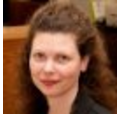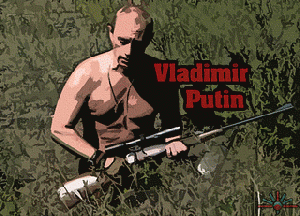Myth #1: Putin is an imperialist who wants to reconstitute the Soviet Union.
The most common premise that the West uses to argue that Putin is an imperialist who wants to reconstitute the Soviet Union is a line plucked from a 2005 speech before the Federal Assembly regarding the collapse of the Soviet Union. This is an example of the West's well established pattern of taking things Putin says out of context to make it sound like he is saying something he is not. Below is what Putin actually said, properly translated and in context:
Above all, we should acknowledge that the collapse of the Soviet Union was a major geopolitical disaster of the century. As for the Russian nation, it became a genuine drama. Tens of millions of our co-citizens and compatriots found themselves outside Russian territory. Moreover, the epidemic of disintegration infected Russia itself.Individual savings were depreciated, and old ideals destroyed. Many institutions were disbanded or reformed carelessly. Terrorist intervention and the Khasavyurt capitulation that followed damaged the country's integrity. Oligarchic groups -- possessing absolute control over information channels -- served exclusively their own corporate interests. Mass poverty began to be seen as the norm. And all this was happening against the backdrop of a dramatic economic downturn, unstable finances, and the paralysis of the social sphere.
Many thought or seemed to think at the time that our young democracy was not a continuation of Russian statehood, but its ultimate collapse, the prolonged agony of the Soviet system.
But they were mistaken.
That was precisely the period when the significant developments took place in Russia. Our society was generating not only the energy of self-preservation, but also the will for a new and free life. In those difficult years, the people of Russia had to both uphold their state sovereignty and make an unerring choice in selecting a new vector of development in the thousand years of their history. They had to accomplish the most difficult task: how to safeguard their own values, not to squander undeniable achievements, and confirm the viability of Russian democracy. We had to find our own path in order to build a democratic, free and just society and state.
When speaking of justice, I am not of course referring to the notorious "take away and divide by all" formula, but extensive and equal opportunities for everybody to develop. Success for everyone. A better life for all.
Putin says nothing that can be construed by any sane person as a desire to rebuild an empire or take over other sovereign nations. He is discussing the conditions in Russia during the 1990's when a small group of well-connected bureaucrats (who would become the oligarchs) seized control of what had been the Soviet Union's major resources and industrial sectors for a pittance, taking the billions of dollars they made out of the country while the population lost their life savings, experienced prolonged periods receiving no salaries or pensions, went hungry and suffered due to skyrocketing crime and a major mortality crisis. He was talking about how the country was gradually getting back on its feet after the decade under Yeltsin's rule that put Russia literally on the verge of being a failed state.
Myth #2: Putin was behind the murders of Anna Politkovskya, Alexsandr Litvinenko, and Boris Nemtsov.
According to a 2006 diplomatic cable, released by Wikileaks, from US Ambassador Bill Burns to Washington regarding the alleged assassination of former Russian intelligence officer Aleksandr Litvinenko, it was agreed that there was no evidence supporting any theories pointing the finger at Putin. Former BBC Moscow correspondent, Angus Roxburgh, in his political biography of Putin, interviewed Martin Sixsmith who led an investigation into Litvinenko's death, in which he concluded that there was no evidence that Putin was behind it. To this day, the British government has refused to release Litvinenko's autopsy report. The withholding of such a critical piece of forensic evidence renders the current court proceedings in Britain a farce.
(Note: You can view every article as one long page if you sign up as an Advocate Member, or higher).






